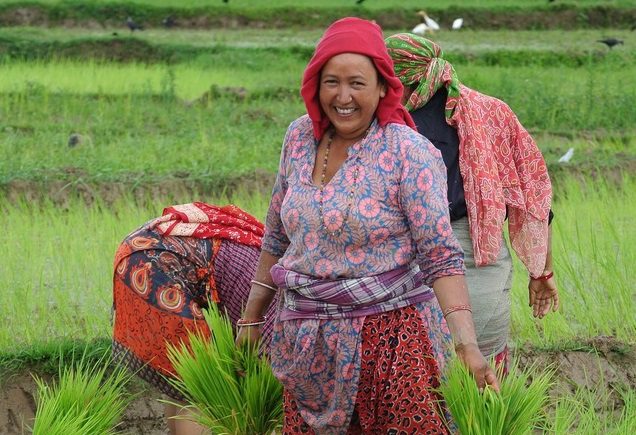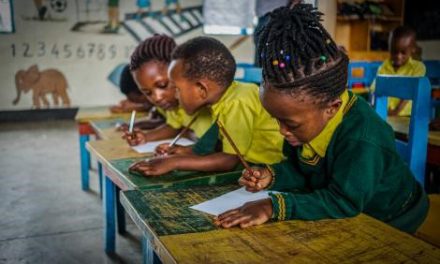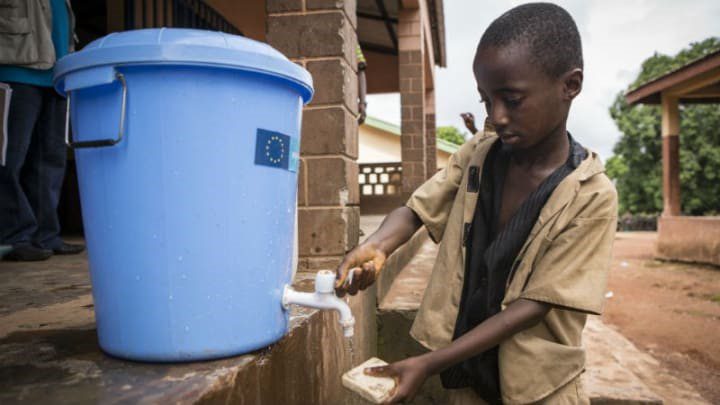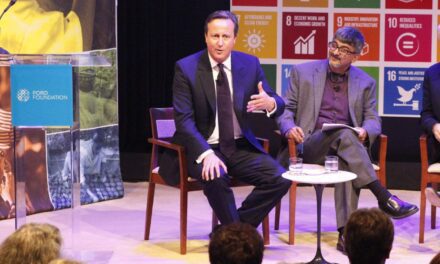This blog was written by Hélène Binesse and Christopher Millora, PhD candidates at the University of East Anglia (UEA). Here, they reflect on the journey of the #ALL4SocialChange initiative, which began as an informal conversation during a study break in our PhD room at UEA.
 In December 2018, we launched the #ALL4SocialChange webinar series, a PhD-led and PhD-focused initiative that seeks to create a platform to share ongoing research in adult literacy and learning (ALL) for social change among early career researchers (ECRs), policymakers and practitioners across the world. This activity is within the UEA UNESCO Chair in Adult Literacy and Learning for Social Transformation we belong to.
In December 2018, we launched the #ALL4SocialChange webinar series, a PhD-led and PhD-focused initiative that seeks to create a platform to share ongoing research in adult literacy and learning (ALL) for social change among early career researchers (ECRs), policymakers and practitioners across the world. This activity is within the UEA UNESCO Chair in Adult Literacy and Learning for Social Transformation we belong to.
This UNESCO Chair aims to develop understanding about how adult learning – particularly for women and young adults – can help address inequalities in the poorest communities of the world. Through investigating how or why adult literacy might facilitate or respond to processes of social transformation, including women’s empowerment, the Chair sets out to strengthen the interaction between formal, non-formal and informal learning in research, policy and programmes. This UNESCO Chair programme is an international partnership with university departments specialising in adult literacy and community learning.
Because we wanted to engage with a wider audience, we asked our presenters to frame their webinars less about the academic contribution but more around implications to practice, recommendations and reflections. It was our attempt to respond to what we thought were limited communication and opportunities to share ideas among ECRs, practitioners and policymakers in the area of adult literacy and learning.
We first had an idea to organise a face-to-face event – like a one-day conference – in Norwich, but there were a lot of constraints such as budget and mobility. But most importantly, we felt like we were limiting the people we can engage with: ECRs who want to present but do not have a conference budget, practitioners and policymakers who may not be able to take one day off to travel. So we thought, what can we do to achieve high impact with low resource?
Impact
The webinar seemed to be a good format to achieve this. For the past seven months, it has already interested academics, policymakers and practitioners. To date, we have hosted nine webinars with ECRs from the UK, the Philippines, Ethiopia, Spain, South Korea and Turkey. The webinars were chaired/moderated by academics from the University of East Anglia, Tribuvhan University (Kathmandu) and the University of Santo Tomas (Philippines), practitioners from SIL International and the UNESCO Institute for Lifelong Learning.
We have already reached 561 unique registrations from at least 35 countries and various organisations (universities in the UK and outside, INGOs, intergovernmental organisation, Ministries) with significant registration from so-called ‘global south’ institutions. All webinars are free and recordings are available on our channel. Previous webinars are available for viewing and upcoming ones will be soon announced and registration links will be open.
Early in this initiative, we have been enthusiastically supported by the members of UEA’s UNESCO Chair in Adult Literacy and Learning for Social Transformation with financial support from the Social Science Faculty. Recently, the webinar also won funding from UEA’s Global Challenges Research Fund on Quality-Related (QR GCRF) so we can continue the work until December.
The call is currently open for ECR presenters and moderators.
Next steps
Moving forward, we are now looking at other ways to expand the webinar experience. For instance, we have recently organised live webinars in Ethiopia and the Philippines and are working towards webinars in other languages, such as French and Arabic. We are also looking at supporting the promotion of research of staff and other members and partners of the UNESCO Chair.
We believe that there is so much value in learning outside formal institutions. We advocate lifelong learning as a research field and as a policy concern, particularly exploring whether and how adult literacy and learning has a role in social transformation. This advocacy is the seed that engendered this process and the fuel that helps it continue to grow. As such, we are optimistic of the project’s future to go beyond hurdles of language, geography and resources.
Speakers ‘experience
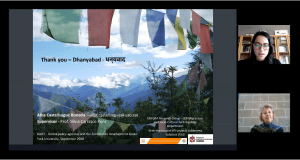
Literacy and learning in Nepal: an exploration of women’s narrative – Webinar presented by Alba Castellsagué and moderated by Lindsay Howard.
“To participate in the webinar has been an outstanding opportunity for me. I could share my work with scholars and practitioners from all around the world, having a very useful feedback. Also I got to know other researchers’ insights on the issue that were valuable in terms of establishing a dialogue with my own research. As a southern European PhD candidate with a very slow budget for conferences the webinar format is particularly helpful for me. I would highlight the potential of this initiative in helping other young researchers like me to overcome economic and logistic barriers. It was all really well organized, congratulations!” – Alba Castellsagué
“It was a real pleasure to be part of the UEA UNESCO series on Social Change, presenting alongside such interesting and innovative researchers. The organisation of the series was seamless, Chris and Helene were not only extremely professional but helpful too. What made the series so exciting was the international reach of the seminars, connecting presenters with audiences around the world. As a presenter I received some really insightful feedback and made connection with other researchers in my field. I believe this format is the future for far reaching impact when it comes to research output.” – Madeleine Le Bourdon
“As a researcher who looks into the role of technology in education, it is my pleasure to be invited as the Webinar presenter. Although I would only be able to see attendants via text messages, the online discussion went well because of collective efforts between human and technology. The time for Q&A was exciting and I hope all of the attendants enjoyed when we actually benefited by the moment of virtual engagement through technology. The UEA UNESCO Webinar series clearly prove the potential of technology in relation to the research conference regardless of expense and distance.” – In Cheol Jang
“Clear concise and well articulated. Wished we had more time. The language used was well understood and not full of academia jargon. As a practitioner I appreciated not ‘floating’ through the lingua and language used. Would love to read your PhD paper and further works. Good job.” – Webinar review

